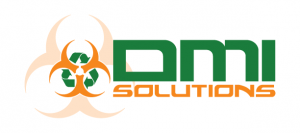Call us anytime
+1 800-455-7747
Email Us
Call us anytime
Email Us
An estimated 16 billion medical items are used worldwide, but not all those wastes are properly disposed of later, a report by the World Health Organization (WHO) reveals.
The WHO report also specifies that about 85 percent of the medical wastes are non-hazardous by nature. Although, only the remaining 15 percent medical waste is toxic, hazardous, or infectious, it does not give much relief to the authorities.
During the COVID-19, more than 8 billion doses of vaccines were administered that globally produced 144,000 tonnes of extra waste comprising syringes, needles, and other items.
Such an overwhelming number of extra medical wastes have put immense pressure on the global and the US healthcare management systems.
In most US states, hospitals and medical clinics generate huge volumes of medical wastes, which require effective disposal management. The employees of the healthcare facilities alone cannot manage such a huge volume of waste.
This is why hiring a reputable waste management and disposal company can solve the problem. A medical waste disposal service provider can remove all the wastes effectively and safely from the environment.
The state environmental and health departments regulate the management and disposal of infectious medical waste. According to this law, hospitals, surgery centers, nursing homes, and other medical clinics in the US have to dispose of infectious waste the right way.
A waste management company mainly follows three steps to handle the end-to-end medical waste disposal process. Those steps are: collecting & categorizing, storing & transporting, and treating & disposing of waste.
The best practice to manage medical waste begins at the point of waste generation. Before collecting medical waste, it is important to know what to collect because each category of medical waste needs to be segregated. The trained staff of a professional waste management company can perfectly separate the waste using the right containers.
Subsequently, the waste collectors color each container to segregate medical waste. For example, red containers have needles, razors, and blades; yellow containers have gloves, empty vials, and gowns; black containers carry hazardous waste, including P-listed drugs, bulk chemo, etc.
If you consult a medical waste disposal company, it will safely store and transport medical waste. The company will store the clinical waste in a secure facility that is isolated from the general public and from any areas that are used for food or drink consumption.
Secure storage is essential until the medical is transported and disposed of in bulk. A medical waste management company will use special vehicles that are equipped with modern defensive tools.
It is crucial to keep in mind that until the safe disposal of medical waste, the involved waste management company is responsible if anything goes wrong. This is why it is important to carefully select a professional waste disposal service provider.
Besides incineration (for pharmaceutical and pathological waste disposal), there are different medical waste disposal methods, such as autoclave chambers (infectious and sharps waste disposal), or using a medical waste shredder.
1 – Healthcare workers can manage the medical waste issue by getting familiar with the respective state regulations.
2 – Employees at healthcare facilities should also learn to identify all the medical waste by the correct segmentation. A reliable medical waste disposal company can help a facility implement these best practices.
3 – For proper disposal of the medical waste, it requires segregation by categories, including pharmaceutical, chemical, pathological, sharps, and non-hazardous items.
4 – Use appropriate containers for keeping medical waste. Put all the waste in approved rigid or semi-rigid, sealed, leak-resistant, and classified containers. Some wastes can be stored in certified cardboard boxes, whereas other wastes can be put in special tubs for transit.
5 – Using appropriate color codes for the containers carrying medical waste is another best practice. Putting biohazard, chemo, pharmaceutical, and radioactive wastes in the properly color-coded and shielded containers makes segregation and transportation easier.
6 – All the containers and bags with medical waste must be taped and packaged adhering to the DOT weight restriction for shipment. The containers should be kept in a secure and dry area before being picked up for shipping. It is also necessary to properly label all waste before transporting it.
7 – Documenting healthcare waste properly waste is important to protect both the healthcare provider and the waste management company. While transporting medical waste, each container should have appropriate documents throughout.
Dealing with multiple regulating bodies, and managing e volumes of wastes and various health hazards present a daunting challenge for a healthcare facility. Hiring the right medical waste disposal company can solve these issues.
Medical waste disposal is a highly specialized job and requires proper experience and utmost care to ensure accurate waste identification, segmentation, and disposal.
State regulations mandate that waste must be stored in a secure way and location to safeguard from theft, advertent exposure to humans or animals, and weather elements.
At DMI Solutions, we care about your business needs and ensure that we are in compliance with Federal and State regulations. If you have a medical facility, our medical waste disposal professionals can help safely remove medical waste using state-of-the-art equipment.
For more details, you can call us at +1 800-455-7747, or fill out this contact form, and we will be glad to assist you.

© Copyright 2020 by DMI Solutions INC